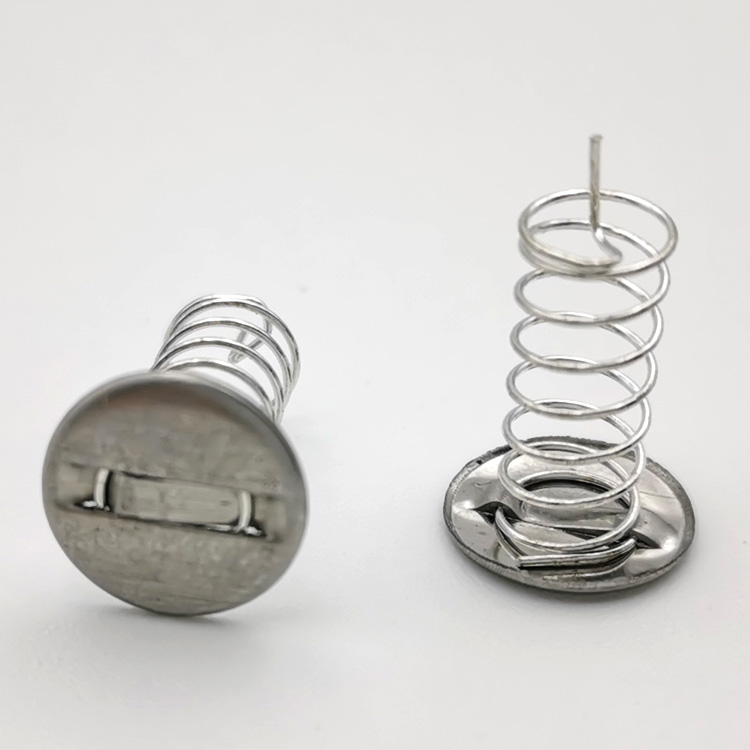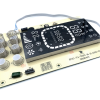
What materials are generally available for springs? | torsion spring parts
Spring steel belongs to steel for mechanical structure; according to its quality grade, it belongs to special quality steel, that is, steel that requires strict quality and performance control during the production process. Classified according to chemical composition:
1. Carbon spring steel.
2. Alloy spring steel.
1. Carbon spring steel: mostly used materials: 65#, 70#, 65mn, 82b, 72a, 72b steel wire, characterized by low plasticity, strong elasticity, and strong stress resistance. Uses: mostly used in Simmons beds, automobiles and other Kinds of cushions, machinery manufacturing, stationery, power tools, sports equipment, torsion springs, tension springs, electrical equipment and other industries. Specification range: wire diameter φ0.20mm-φ6.50mm. Standard: carbon spring steel wire national standard gb4357-89 Main purpose: used to manufacture springs that are wound and formed in a cold state without being quenched
2. Alloy spring steel: Alloy spring steel is a type of steel used to make springs or other elastic parts. Springs generally work under alternating stress, and the common form of failure is fatigue failure. Therefore, alloy spring steel must have a high yield point and yield ratio (σs/σb), elastic limit, and fatigue resistance to ensure that the spring has Sufficient elastic deformation capacity and able to withstand larger loads. At the same time, alloy spring steel is also required to have a certain degree of plasticity and toughness, a certain degree of hardenability, not easy to decarburize and not easy to overheat. Some special springs also require heat resistance, corrosion resistance or stable elasticity over a long period of time. Both medium carbon steel and high carbon steel can be used as springs, but because of their low hardenability and strength, they can only be used to make springs with smaller cross-sections and smaller forces. Alloy spring steel can produce important springs with larger cross-sections and higher yield limits.
In some occasions with specific requirements, such as high pH and humid environments, we often use stainless steel materials to make springs.
The material of the mould spring is generally chromium alloy steel. Chrome alloy spring steel has the characteristics of high temperature resistance, high rigidity and long life.
torsion spring parts
1. Carbon spring steel.
2. Alloy spring steel.
1. Carbon spring steel: mostly used materials: 65#, 70#, 65mn, 82b, 72a, 72b steel wire, characterized by low plasticity, strong elasticity, and strong stress resistance. Uses: mostly used in Simmons beds, automobiles and other Kinds of cushions, machinery manufacturing, stationery, power tools, sports equipment, torsion springs, tension springs, electrical equipment and other industries. Specification range: wire diameter φ0.20mm-φ6.50mm. Standard: carbon spring steel wire national standard gb4357-89 Main purpose: used to manufacture springs that are wound and formed in a cold state without being quenched
2. Alloy spring steel: Alloy spring steel is a type of steel used to make springs or other elastic parts. Springs generally work under alternating stress, and the common form of failure is fatigue failure. Therefore, alloy spring steel must have a high yield point and yield ratio (σs/σb), elastic limit, and fatigue resistance to ensure that the spring has Sufficient elastic deformation capacity and able to withstand larger loads. At the same time, alloy spring steel is also required to have a certain degree of plasticity and toughness, a certain degree of hardenability, not easy to decarburize and not easy to overheat. Some special springs also require heat resistance, corrosion resistance or stable elasticity over a long period of time. Both medium carbon steel and high carbon steel can be used as springs, but because of their low hardenability and strength, they can only be used to make springs with smaller cross-sections and smaller forces. Alloy spring steel can produce important springs with larger cross-sections and higher yield limits.
In some occasions with specific requirements, such as high pH and humid environments, we often use stainless steel materials to make springs.
The material of the mould spring is generally chromium alloy steel. Chrome alloy spring steel has the characteristics of high temperature resistance, high rigidity and long life.
torsion spring parts






